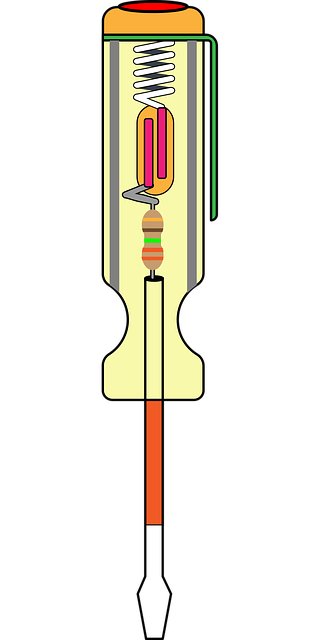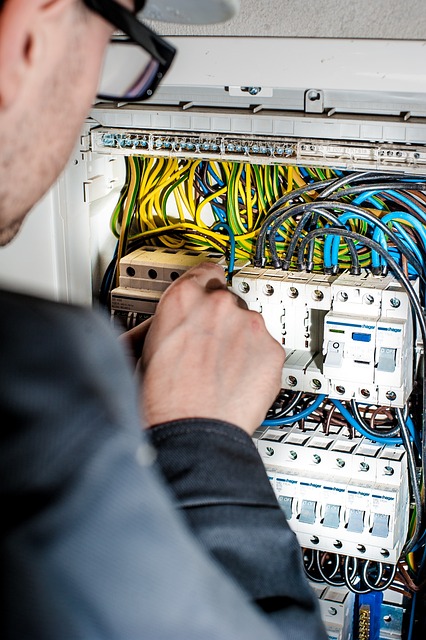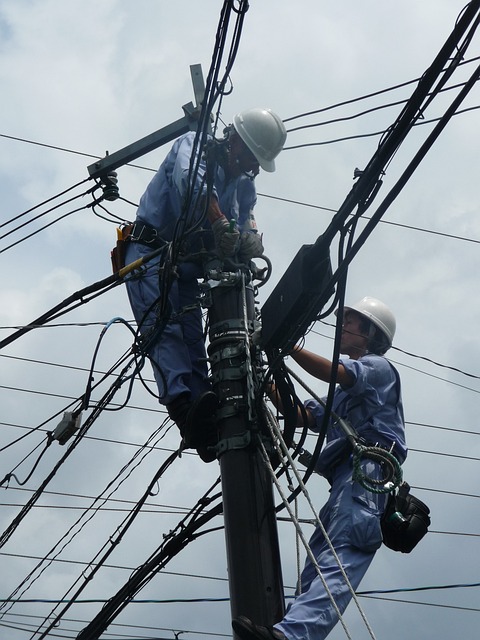Category: Industrial Electrical Services Eugene Oregon
Industrial Electrical Services Eugene Oregon: Powering Progress and Innovation
Introduction
In the heart of Oregon lies a vibrant city, Eugene, which has emerged as a hub for industrial growth and technological advancement. Among its diverse sectors, industrial electrical services stand out as a cornerstone of the region’s economy and reputation for innovation. This comprehensive article aims to explore every facet of “Industrial Electrical Services Eugene Oregon,” shedding light on its significance, global impact, economic implications, technological innovations, regulatory landscape, challenges, and future prospects. By delving into these aspects, we will uncover how this industry contributes to the progress of both Eugene and the broader global community.
Understanding Industrial Electrical Services Eugene Oregon: A Comprehensive Overview
Definition and Core Components
“Industrial Electrical Services Eugene Oregon” refers to a specialized subset of electrical engineering and contracting tailored to meet the unique demands of industrial facilities within the city of Eugene and its surrounding areas. This sector encompasses a wide range of services, including:
- Design and Engineering: Creating efficient and safe electrical systems for factories, power plants, and other industrial sites.
- Installation: Setting up and integrating complex electrical infrastructure, equipment, and machinery.
- Maintenance and Repair: Regular upkeep and quick response to failures to ensure uninterrupted operations.
- Upgrades and Retrofitting: Modernizing older facilities to enhance productivity and energy efficiency.
- Consultancy: Providing expert advice on regulatory compliance, energy management, and future-proofing industrial electrical systems.
Historical Context and Significance
The history of industrial electricity in Eugene dates back to the late 19th century when the city’s economic landscape was primarily driven by timber and agriculture. As industries began to shift towards Oregon in the mid-20th century, the demand for skilled electrical professionals grew. This period saw the establishment of several key players who laid the foundation for today’s thriving industry.
Over time, industrial electrical services evolved to meet the increasing complexity of industrial processes and technologies. The advent of computers, automation, and advanced manufacturing required specialized knowledge to integrate these systems seamlessly. Eugene’s industries, from lumber mills to high-tech startups, rely on efficient and reliable electrical infrastructure, fostering a culture of innovation and setting the stage for global competition.
Global Impact and Trends
“Industrial Electrical Services Eugene Oregon” transcends local boundaries, influencing international trends and practices in several significant ways:
| Global Impact | Description |
|---|---|
| Energy Efficiency | Eugene’s industrial sector has embraced energy-efficient technologies, contributing to global efforts to reduce carbon emissions. This trend is driving the adoption of smart grids, renewable energy sources, and advanced lighting systems worldwide. |
| Digital Transformation | The city’s industries have been early adopters of digital solutions, such as Industrial Internet of Things (IIoT) devices and predictive analytics, enhancing productivity and safety. These innovations are now being implemented globally to revolutionize industrial operations. |
| Sustainability Initiatives | Eugene’s commitment to sustainability has led to the development of eco-friendly electrical systems and practices. The city’s success in waste reduction and recycling has inspired similar initiatives worldwide. |
Regional Variations and Challenges
While global trends provide a framework, regional differences play a crucial role in shaping local industrial electrical services:
- North America: Known for its stringent safety standards and advanced automation, North American industries lead the way in robotic integration and predictive maintenance.
- Europe: With a focus on sustainability, European companies excel in integrating renewable energy sources and efficient lighting systems.
- Asia: Rapid industrialization in Asia presents unique challenges and opportunities, with countries like China and Japan setting benchmarks for high-density urban electrification.
Economic Considerations: Market Dynamics and Investment
The economic landscape of “Industrial Electrical Services Eugene Oregon” is dynamic and multifaceted:
Market Dynamics
- Diverse Industries: Eugene’s economy boasts a mix of traditional industries like lumber, agriculture, and emerging sectors such as clean energy and high-tech manufacturing. This diversity drives varied electrical service demands.
- Seasonal Fluctuations: Some industrial activities peak during specific seasons, impacting the workforce and project loads for electrical contractors.
- Technological Pull: The adoption of new technologies creates both opportunities and challenges, requiring specialized skills and investments in training.
Investment Patterns
- Infrastructure Development: Local governments and businesses invest heavily in modernizing industrial parks and facilities, driving demand for electrical infrastructure upgrades.
- Research and Innovation: Collaborative efforts between industries and research institutions fuel advancements in automation, energy storage, and smart grids.
- Green Initiatives: Investments in sustainable practices, such as solar panel installations and energy-efficient machinery, contribute to a more environmentally conscious industrial sector.
Technological Advancements: Powering the Future
The heart of “Industrial Electrical Services Eugene Oregon” beats with cutting-edge technology, shaping the future of industrial operations:
- Smart Grids: These advanced electrical grids enable real-time monitoring and control, improving efficiency and resilience. Smart meters and distributed energy resources (DERs) are integral components.
- Industrial Internet of Things (IIoT): IIoT devices connect machines and systems, allowing for predictive maintenance, improved safety, and enhanced operational visibility.
- Automation and Robotics: Advanced robotics and automation reduce manual labor, increase productivity, and enhance workplace safety in manufacturing facilities.
- Digital Twin Technology: Creating digital replicas of physical assets enables simulation, testing, and optimization of industrial processes before implementation.
Regulatory Landscape: Ensuring Safety and Compliance
The regulatory environment plays a critical role in shaping “Industrial Electrical Services Eugene Oregon”:
- National Standards: The National Electrical Code (NEC) sets the baseline for electrical safety standards across the United States, ensuring consistent practices among contractors.
- Local Codes and Permits: Eugene’s building and safety codes govern specific aspects of industrial electrical work, requiring permits for certain installations and alterations.
- Environmental Regulations: Strict environmental regulations guide the handling of hazardous materials and waste, impacting electrical project planning and execution.
- Occupational Safety and Health Administration (OSHA) Standards: OSHA mandates safe working conditions, influencing safety protocols and training programs for electrical contractors.
Challenges and Opportunities: Navigating the Complexities
Despite its thriving reputation, the industry faces several challenges:
- Skill Shortage: The demand for highly skilled professionals often outstrips the available workforce, creating a shortage of qualified electricians and engineers.
- Rapid Technological Change: Keeping up with rapidly evolving technologies requires continuous training and investment in new tools and equipment.
- Cybersecurity Risks: As industrial systems become more interconnected, cybersecurity threats increase, necessitating robust digital security measures.
However, these challenges also present opportunities:
- Job Creation: The industry’s growth can lead to the creation of well-paying jobs, addressing skill gaps through training programs and educational initiatives.
- Innovation Hubs: Eugene can position itself as a center for technological innovation, attracting investment and talent in the electrical engineering field.
- Global Collaboration: By sharing knowledge and best practices, local industries can collaborate internationally to solve complex challenges and drive sustainable development.
Future Prospects: A Vision for 2030 and Beyond
Looking ahead, “Industrial Electrical Services Eugene Oregon” is poised for continued growth and transformation:
- Decarbonization: The industry will play a pivotal role in the region’s transition to renewable energy sources, supporting the goal of net-zero emissions.
- Digital Integration: Advanced automation and IIoT will further penetrate industrial operations, enhancing productivity and efficiency.
- Sustainable Practices: Green building codes and circular economy principles will shape the design and operation of future industrial facilities.
- Skills Evolution: The industry must adapt its training programs to include emerging technologies, ensuring a flexible and adaptable workforce.
- Global Connectivity: As the world becomes more interconnected, local industries can leverage their expertise through international collaborations and consulting services.
Conclusion: Powering Progress in Eugene and Beyond
“Industrial Electrical Services Eugene Oregon” is not just about wiring buildings; it is about fueling innovation, driving economic growth, and shaping a sustainable future. Through its comprehensive services, the industry supports a diverse range of industries, from traditional manufacturing to cutting-edge technology sectors. By embracing technological advancements, addressing skill gaps, and staying at the forefront of global trends, Eugene’s industrial electrical contractors will continue to contribute to the city’s reputation as an innovation hub and make significant impacts on the world stage.









